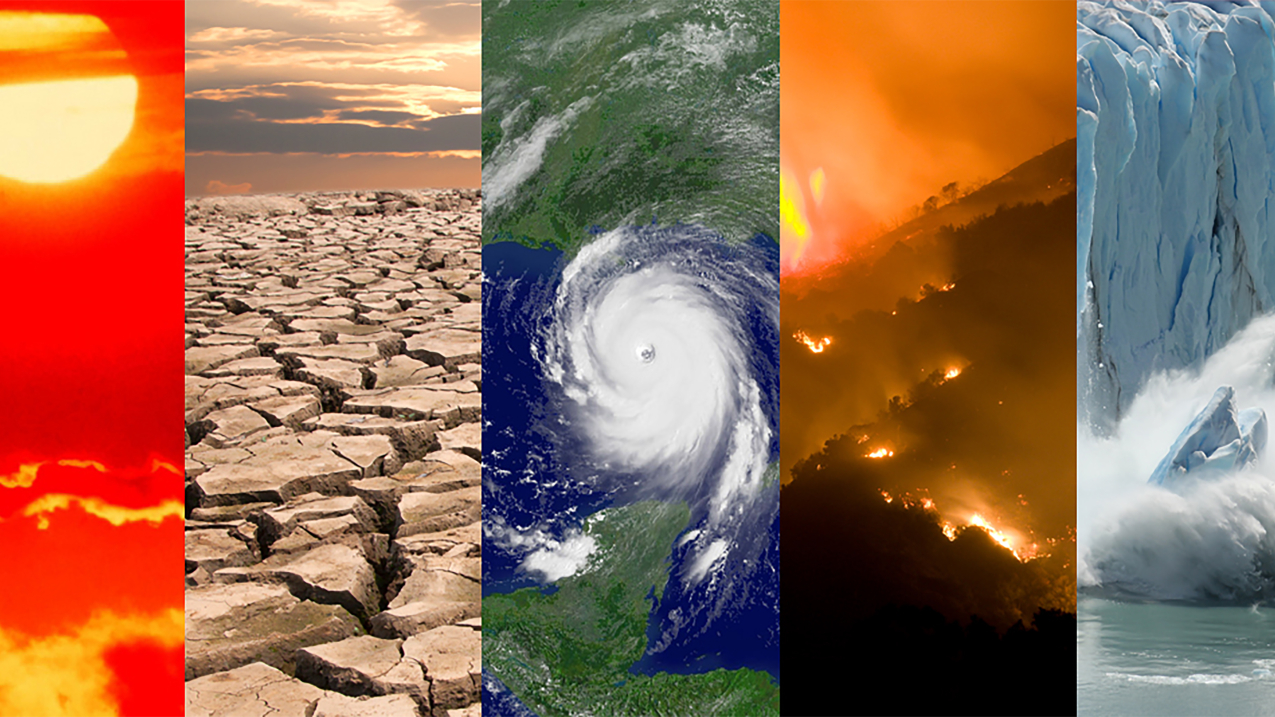The Intergovernmental Panel on Climate Change (IPCC) recently published its Sixth Assessment Report (AR6) cycle synthesis report, which serves as a survival guide for humanity. The report emphasizes the critical need for a climate-resilient development model that integrates adaptation, mitigation, and long-term growth for all.

The AR6 Report’s Key Takeaways
- Human activity is driving global temperature rise, which is presently 1.1°C above pre-industrial levels and is expected to reach 2.8°C by 2100.
- While the rate of increase in emissions has slowed in the last decade, humankind is expected to be on a 2.8° C (2.1°-3.4° C) trajectory by 2100.
- This temperature rise is having a wide-ranging impact on climatic systems, with lower temperatures posing greater risks than originally thought.
- According to the IPCC report, humanity had already used up 80% of its carbon budget for limiting warming to 1.5°C by 2019, with developed countries being the largest contributors.
- The report also points out that existing modeling studies, which are frequently used to evaluate emission trajectories, do not expressly account for equity concerns.
There are significant consequences for limiting warming to 1.5°C rather than 2°C
Carbon Budget and Temperature Targets:
- The global carbon budget for 1.5°C is significantly smaller than for 2°C. Global pathways indicate that limiting warming to 1.5°C requires a 43% reduction in greenhouse gas emissions by 2030, while limiting warming to 2°C requires a 21% reduction.
- Worryingly, predicted CO2 emissions from existing fossil fuel infrastructure have already exceeded the remaining carbon budget for 1.5°C.
- Striking for a 1.5° C target necessitates significant and immediate reductions in emissions across all sectors and regions, emphasizing different national circumstances and issues of climate equity, as well as the operationalization of the UNFCCC’s core principle of Common but Differentiated Responsibility and Respective Capabilities.
Climate adaptation itself has limits:
- The study emphasizes that adaptation has limits, implying that some losses and damages from climate change are unavoidable.
- According to the study, some coastal and polar ecosystems have already hit hard limits in their ability to adapt to climate change.
Key message of the report
- Climate-resilient development: Adopting climate-resilient development, a developmental model that integrates both adaptation and mitigation, as soon as possible to promote sustainable development for all.
- Green transition: The report evaluates a wide range of technologies and design options, such as solar energy or electric vehicles, that can assist nations in reducing emissions or becoming more resilient today at low cost and in a technically feasible way.
- Prioritizing and addressing equality and social justice in transition processes has been shown to be critical to climate-resilient development.
- Net-zero emissions: The world must achieve net-zero emissions in order to obtain climate-resilient development. This may be contingent on large-scale carbon dioxide removals, which are difficult to accomplish.
Climate Response: Advances and Gaps
- With the effectiveness of policy tools such as carbon markets, some progress has been achieved in policies and laws.
- According to the study, there are gaps between what countries have pledged and what they have modelled (ambition gaps), as well as significant gaps between what countries pledge and what they actually do. (implementation gaps).
Way forward
- Policy package: Policy packages that handle climate objectives comprehensively can assist countries in meeting short-term economic goals.
- Delay in action risks locking in high-carbon infrastructure in this decade, resulting in stranded assets and financial instability in the long term. As a result, large upfront expenditures in clean infrastructure are required.
- Financing must be significantly increased: Despite adequate global capital, both adaptation and mitigation funding must be increased many times over, from 2020 to 2030, for annual modelled mitigation investments.
@the end
The IPCC AR6 synthesis report lays out a roadmap for sustainable development and offers a sobering assessment of current and prospective threats to ecosystems and vulnerable populations. It is critical that governments and individuals all over the world act quickly to mitigate and adapt to climate change, as well as seek climate-resilient development.
Source: https://indianexpress.com/article/explained/explained-climate/ipcc-synthesis-key-takeaways-8510544/
